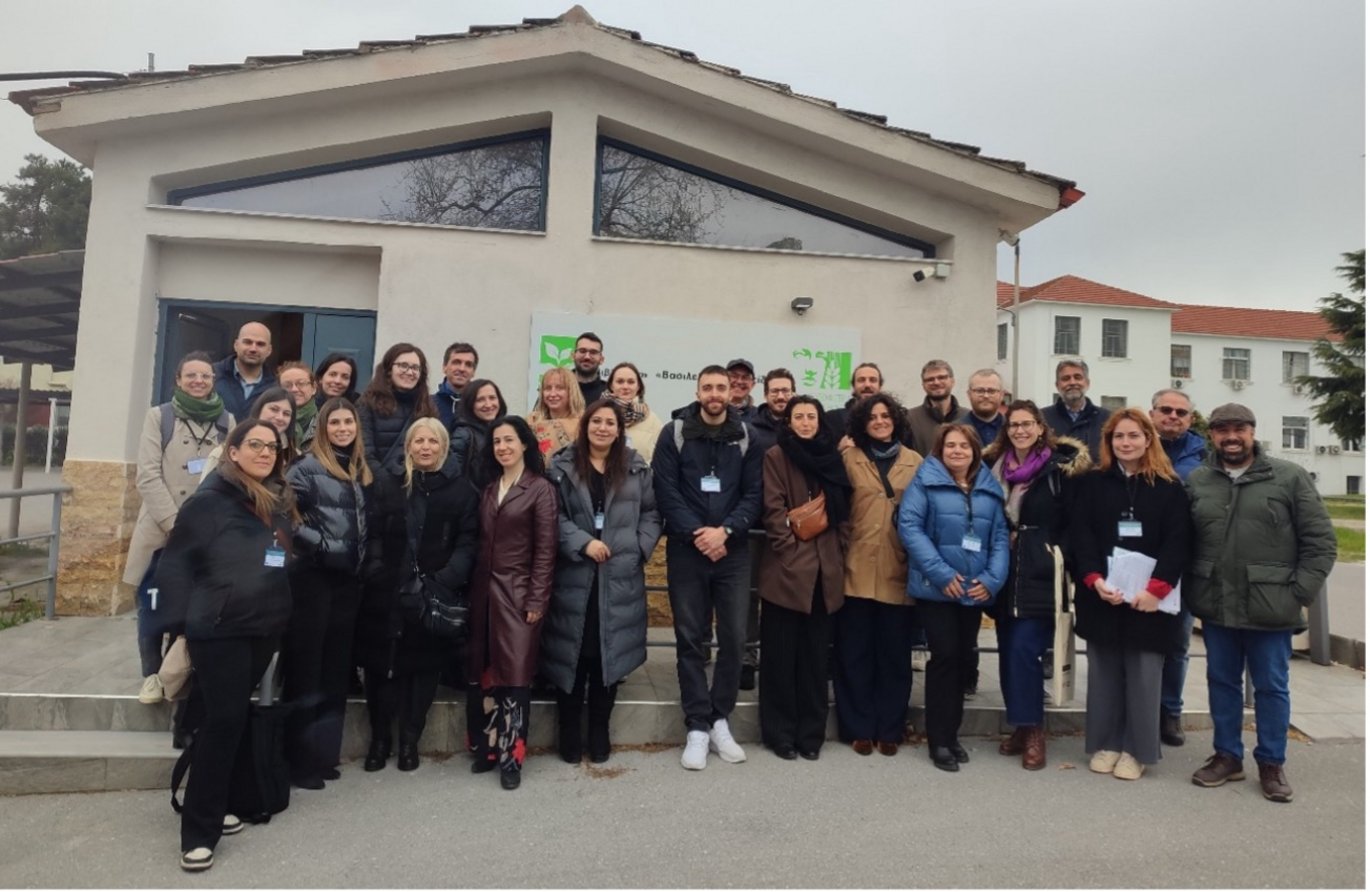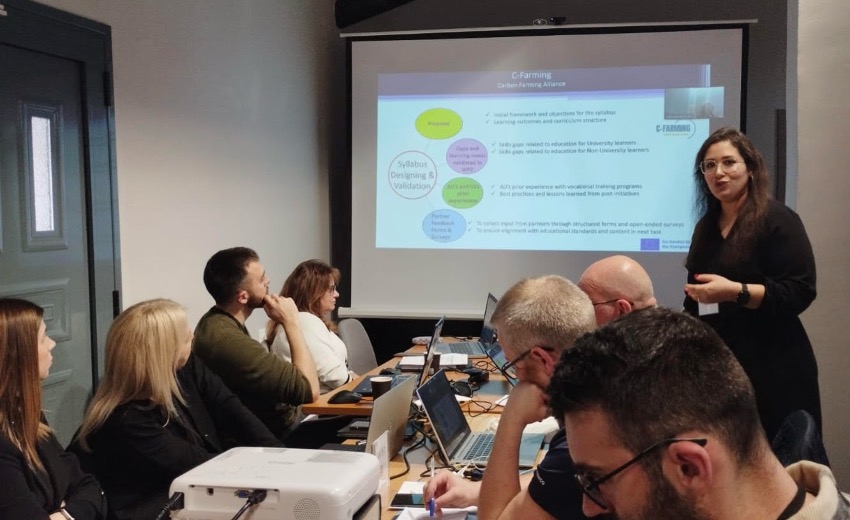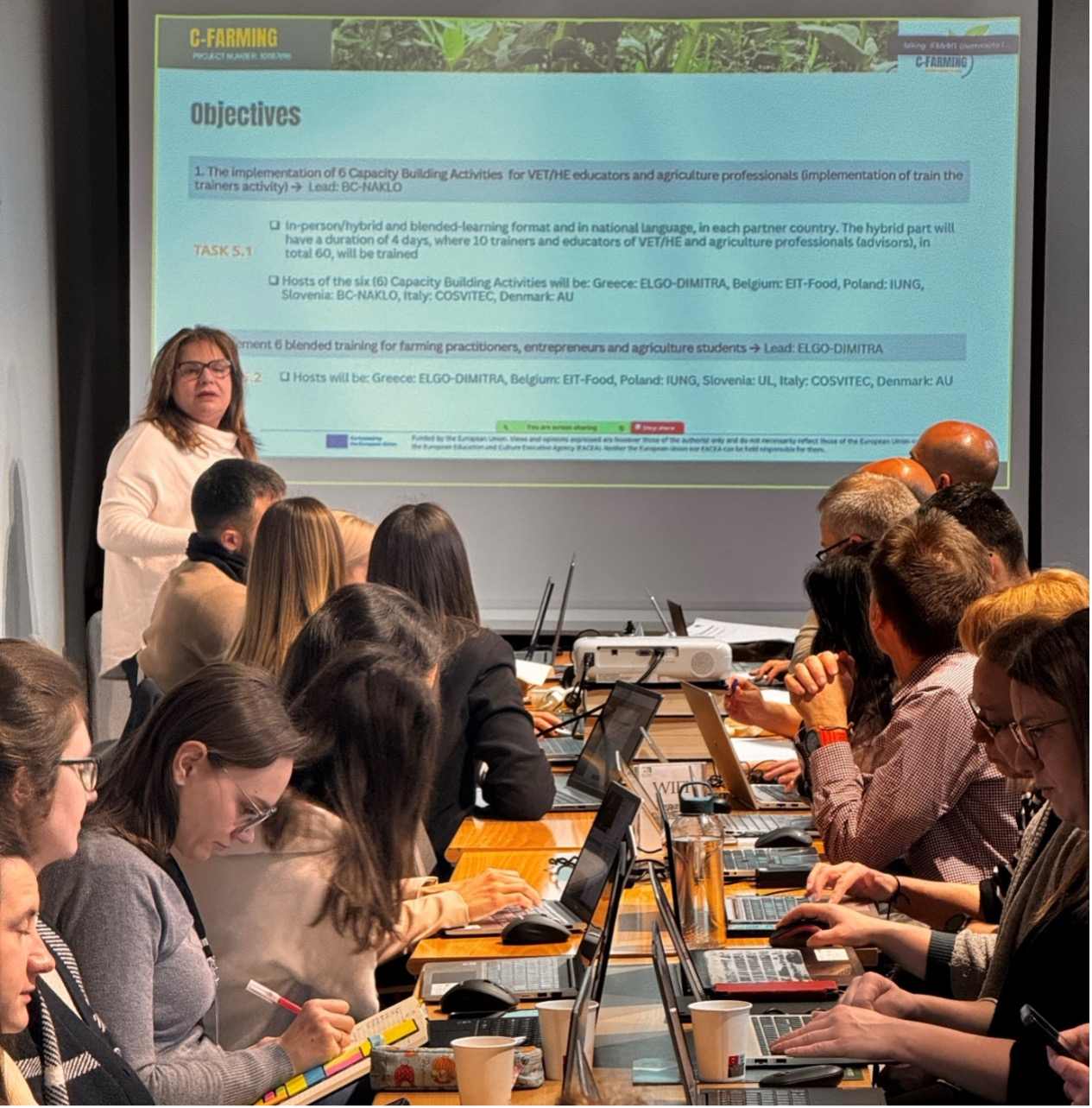Researchers from Aarhus University are shaping green agricultural education
How do we prepare agricultural education for the climate crisis? That’s the question researchers from Aarhus University are trying to answer in collaboration with partners from seven EU countries. As part of a new Erasmus+ project, they aim to develop teaching materials and business models for so-called carbon farming – a path towards making European agriculture more climate-friendly and sustainable.



The European Union has made bold promises in its climate policies. Through initiatives like the Green Deal and the Farm to Fork strategy, the message is clear: agriculture must become more climate-friendly. But behind the vision, progress is moving slowly. Since 1990, greenhouse gas emissions from the EU's agricultural sector have only dropped by around 7–8%, and most of those reductions happened before 2012. Meanwhile, Europe’s soils are losing their quality and their capacity to store carbon. The European Environment Agency estimates that the environmental cost of inaction is more than €50 billion a year.
These facts trouble Maryam Rahimi Jahangirlou, postdoc at the Department of Agroecology at Aarhus University. But they also fuel her motivation:
"These trends show why it's so urgent to transition agriculture towards carbon-based solutions. That’s particularly true in Denmark, where agricultural land makes up a much larger proportion of the territory than in most other EU countries," she says. "Removing CO₂ from the atmosphere is a key climate priority here. We need to think smarter, act strategically, and collaborate more effectively if we want to reverse the decline of Europe’s land-based carbon stocks."
So, how do we achieve negative emissions – that is, store more carbon in the soil than we emit? And can we do that while still producing food sustainably? These are the questions Maryam Rahimi Jahangirlou, and her colleagues are trying to answer in a new EU-funded Erasmus+ project called C-farming, which brings together 18 partners from seven countries.
Their goal: to develop new teaching materials and business models for "carbon farming" – an approach that could help make European agriculture both greener and more resilient.
What exactly is carbon farming?
The EU defines carbon farming as "climate-friendly practices used by farmers and forest managers to increase carbon capture and storage in soil and forests, and to reduce greenhouse gas emissions from land." It includes technologies that remove carbon from the atmosphere and store it underground, in biomass, or in long-lived products.
"The new EU regulation on carbon removal and carbon farming (CRCF – EU/2024/3012) was published in December 2024. It establishes the first voluntary certification system for carbon removals, carbon farming, and carbon storage in products," Maryam e Rahimi Jahangirlou explains.
In practice, carbon farming covers a wide range of agricultural methods: cover crops, reduced tillage, hedgerows, agroforestry, better fertiliser use, peatland restoration, and even rewetting wetlands. It also includes high-tech solutions to bind carbon in the soil and reduce nitrous oxide emissions.
"In short," says Maryam Rahimi Jahangirlou, "carbon farming aligns ecological, economic, and climate goals, to the benefit of the planet, biodiversity, and the farmer."
Her colleague Kiril Manevski, researcher at the Department of Agroecology and fellow project partner, agrees:
"The specific practices may vary by region, and even from farm to farm. In Denmark, we already have systems in place that are ready to implement these principles. In Greece, for instance, the solutions need to be more tailored."
Reaching the whole agricultural ecosystem
For carbon farming to make a real difference, the whole agricultural knowledge and training ecosystem needs to be on board: farmers, advisers, vocational schools, and universities. And that’s where the C-farming project comes in.
The project, funded under Erasmus+ Key Action 2, officially launched in February 2025. Its kickoff meeting took place in Thessaloniki, Greece, hosted by ELGO-DIMITRA, a research institute for plant production and genetics. It runs for three years and includes universities, vocational schools, research institutions, and agricultural organisations from Denmark, Slovenia, Greece, Belgium, Poland, Italy, and Germany.
The aim is to create practical training modules and business models that reflect real needs identified by farmers, farm managers, students, educators, and green entrepreneurs. These include knowledge gaps about carbon cycles and climate-smart practices, and a lack of up-to-date materials to support the EU’s new CRCF regulation.
"The project supports Europe’s green transition and recovery by promoting inclusive, sustainable, and digital learning environments," says Maryam Rahimi Jahangirlou. "We want to empower learners to adopt regenerative business models and become active agents in climate action."
Universities as a driving force in climate-smart education
Aarhus University leads the academic working group within the C-farming consortium. Together with the University of Ljubljana and the other partners, they are developing a comprehensive educational strategy and vocational training programme from the ground up.
"It’s perfect timing, because our department is also involved in other projects that strengthen the capacity of vocational schools to teach climate-smart agriculture in Denmark," Maryam says.
One such project is EVECSA (European Vocational Education in Climate Smart Agriculture), which builds strong connections between agricultural colleges and researchers.
"It ensures that vocational students in agriculture are trained in close collaboration with scientists. That not only improves the quality of education but also inspires more young people to pursue green careers."
Kiril also highlights related projects such as ECOLUTION – a European Master’s programme in sustainable solutions – and ALIGNING, which spreads climate knowledge in agriculture across Europe and Asia.
Together, these efforts support a range of learning pathways: vocational courses, open online courses (VOOCs), and a "train-the-trainer" programme delivered as a Massive Open Online Course (MOOC). All materials are certified and quality-assured according to international standards to ensure widespread recognition.
To make the training accessible and locally relevant, all teaching materials are being translated into the partner countries' native languages.
More information
Read more: You can read about C-farmning here.
Contact: Maryam Rahimi Jahangirlou, Department of Agroecology, Aarhus University, mail: maryam.rahimijahangirlou@agro.au.dk or Kiril Manevski, Department of Agroecology, Aarhus University, tel: +45 93 52 21 42 or mail: kiril.manevski@agro.au.dk
